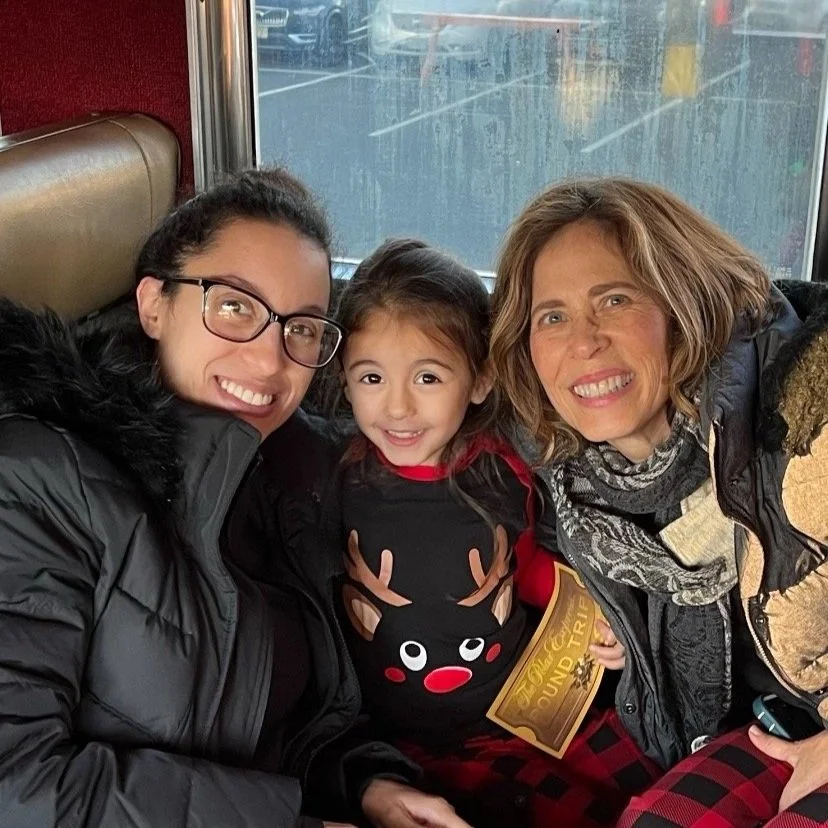Heidi Rivera: A Mother’s Life as a Brain Injury Caregiver
Three generations on the Polar Express.
Can you share about the brain injury event itself?
My journey as a caregiver began in August 2022, when my daughter (now 32) was living in Texas and was diagnosed with a traumatic brain injury (TBI).
How did you feel during the first days, weeks, or months after the injury?
As a mother, I felt terrified, helpless, and anxious—especially because she was so far away from us. My husband, who was retired, was able to fly to Texas and stayed with her for almost three months. I made short visits whenever I could, and eventually, we all drove back to New York together.
What kind of rehabilitation therapies or treatment have been most helpful through the process of recovery?
Finding effective treatments continues to be an ongoing challenge for my daughter. We are constantly exploring different therapies to see what works best for her.
What have been some of the biggest challenges you or your loved one has faced during recovery?
My daughter experiences chronic migraines—she has had a migraine 24/7 since the injury. She also struggles with short-term memory loss, feeling unbalanced, and relies on a walker to get around.
As a caregiver, I often feel helpless—it’s incredibly painful to watch someone you love struggle and live in constant pain.
How has your life changed since the brain injury?
I have transitioned into being a full-time caregiver for my adult daughter.
What role has support from family, friends, or community played in your journey?
The Hope After Head Injury Support Group, now known as Hope Survives, helped me understand my daughter’s daily struggles. It also helped Kayla realize that she is not alone in this healing journey.
I am incredibly grateful to have family and friends who support me, helping me navigate this new role as a caregiver.
Have there been any moments of breakthrough or unexpected positives along the way?
Absolutely. What may seem small to others are huge milestones for us—things like shopping in a store, FaceTiming a friend, or making stromboli.
What has surprised you about this journey with brain injury?
I never realized just how many people are affected by brain injury. This experience has taught me empathy—you never know what someone else is going through. People need to be more understanding of the struggles others may be facing.
What does "hope" mean to you?
Hope means persevering through difficult times, being grateful for the little things, and looking forward to the future.
If you could share one encouraging message with another survivor or family, what would it be?
It’s important to reach out when you need help. Caregivers also need time for themselves to regroup and recharge, so they can be at their best for their loved ones.

